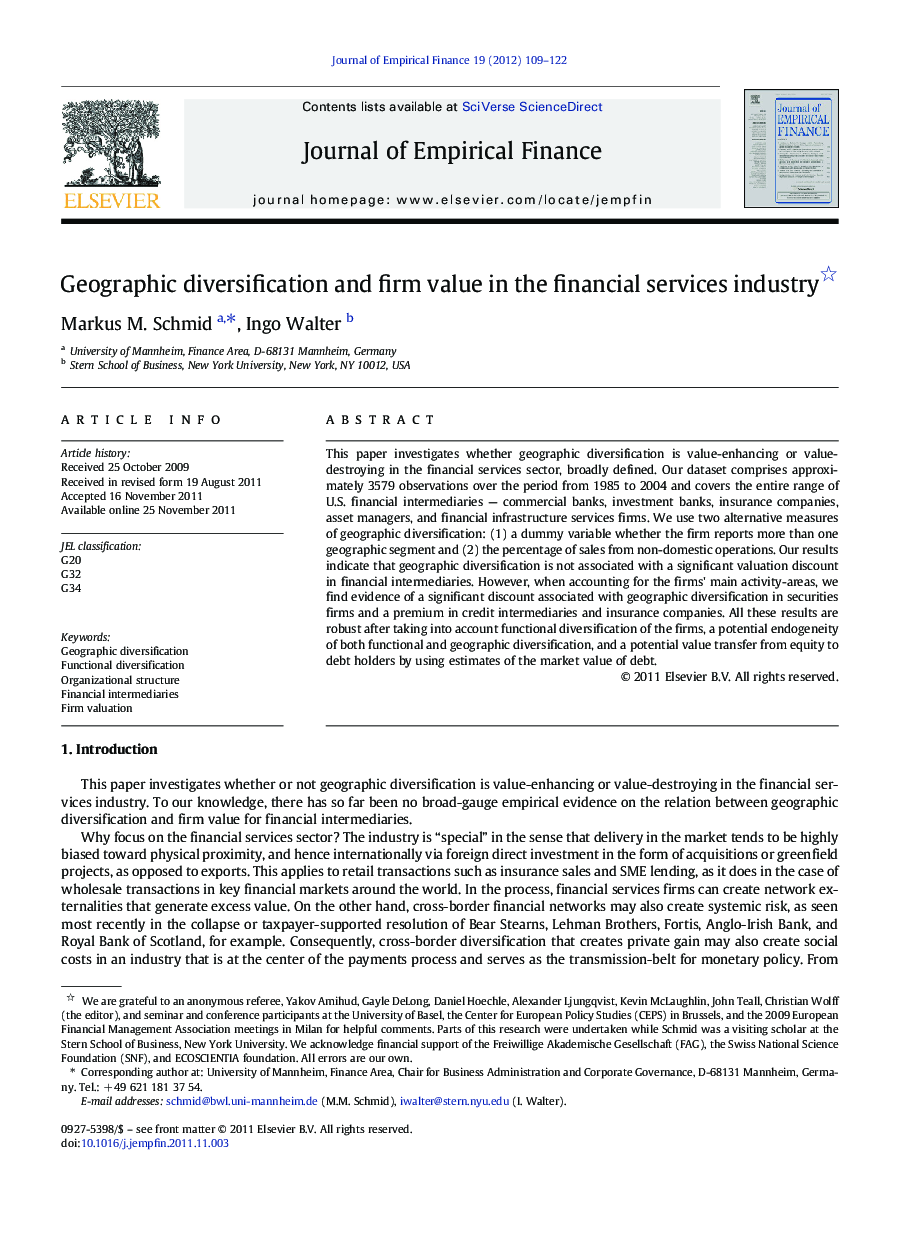| Article ID | Journal | Published Year | Pages | File Type |
|---|---|---|---|---|
| 958277 | Journal of Empirical Finance | 2012 | 14 Pages |
This paper investigates whether geographic diversification is value-enhancing or value-destroying in the financial services sector, broadly defined. Our dataset comprises approximately 3579 observations over the period from 1985 to 2004 and covers the entire range of U.S. financial intermediaries — commercial banks, investment banks, insurance companies, asset managers, and financial infrastructure services firms. We use two alternative measures of geographic diversification: (1) a dummy variable whether the firm reports more than one geographic segment and (2) the percentage of sales from non-domestic operations. Our results indicate that geographic diversification is not associated with a significant valuation discount in financial intermediaries. However, when accounting for the firms' main activity-areas, we find evidence of a significant discount associated with geographic diversification in securities firms and a premium in credit intermediaries and insurance companies. All these results are robust after taking into account functional diversification of the firms, a potential endogeneity of both functional and geographic diversification, and a potential value transfer from equity to debt holders by using estimates of the market value of debt.
► We investigate the value effect of geographic diversification for financial services firms. ► Our dataset covers the entire range of U.S. financial intermediaries. ► Overall, geographic diversification is not associated with a significant discount. ► But there is a discount in securities firms and a premium in credit intermediaries and insurance companies.
